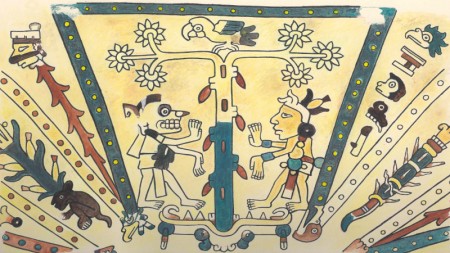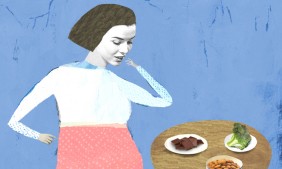This video story was originally produced by Jenny Oh and was updated by Lisa Landers and Arwen Curry.
Chocolate is the solid gold of sweets, providing a standard of delectability that’s been upheld around the globe for more than 2,000 years. The ancient Mayans and Aztecs even used the pods of the cacao tree, which produces chocolate, as currency. They also used cacao as a tonic to improve overall health.

Courtesy Cameron McNeil and Eliud Guerra.
Today’s scientists agree with the ancients: chocolate, in small doses, is not just delicious -- it’s actually good for you. This is particularly true of dark chocolate, which is rich in compounds called flavanols. Also found in red wine, tea and berries, flavanols have an antioxidant effect, reducing cell damage and heart disease. Research also strongly suggests that they support healthy blood pressure and reduce the chances of strokes and heart attacks.
“They’re really good at really scavenging or sopping up these free radicals that can damage your cells,” said Mary Engler, a senior clinician and training director at the National Institutes of Health, NINR, in Bethesda, MD. Engler has studied the health effects of chocolate and other flavonols since 2001.

Artwork by Katherine Streeter.
Pregnant women should take special note: Regular intake of chocolate -- the darker the better -- during pregnancy appears to lower the risk of pre-eclampsia, a dangerous complication. A 2013 study at the University of Helsinki, Finland also showed that women who eat chocolate every day during pregnancy report calmer, happier babies six months after giving birth.

